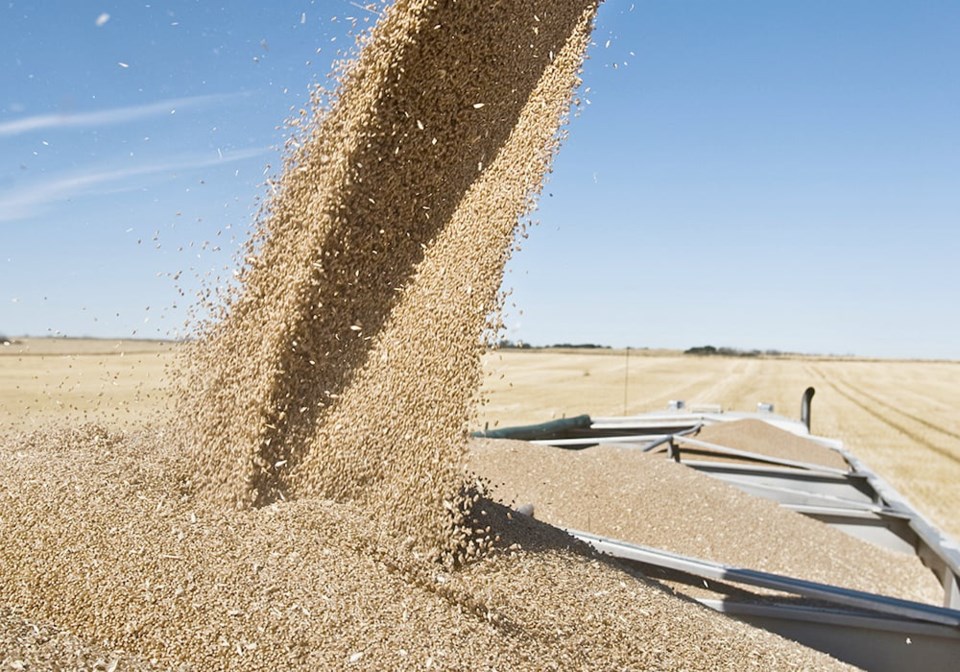SASKATOON — Gro Intelligence is forecasting a rebound in global wheat supplies in 2024 after multi-year declines.
World stocks of the crop, excluding China, have declined for four straight years, with inventories at their lowest level in 15 years.
That will not be the case this year, according to the company’s machine learning-based forecast models.
“A favourable start to winter wheat crops in the U.S. and Russia, along with improved prospects for crops that will be planted later in 2024 in Argentina and Australia, is expected to lift world wheat inventories,” the company stated in its 2024 Watchlist.
MarketsFarm analyst Mike Jubinville thinks it is premature to be making any production forecasts, especially for crops in the Northern Hemisphere.
He also noted that supply isn’t as much of a factor in the wheat market as demand is these days.
Inflation, rising interest rates and the inability to secure letters of credit are hampering the ability of end users to make purchases.
“They just don’t have the money in challenged economies,” he said.
“That has been the real drag on agriculture markets.”
Buyers in markets such as North Africa and some Asian countries are looking for alternatives, buying smaller volumes or postponing purchases.
But on the supply side, Gro believes promising early-season conditions and favourable weather forecasts suggest that U.S. hard red winter wheat yields could recover after years of drought.
The U.S. Department of Agriculture recently estimated that farmers planted 34.43 million acres of winter wheat, a six percent decline from last year but four percent above the five-year average.
Half of the crop is rated good to excellent, the highest rating since 2020.
Jubinville said there is no doubt moisture conditions have improved in the U.S. central plains region compared to this time last year, but that is not the moisture that counts.
“That crop is not made or broke until after it breaks dormancy, (from) March forward,” he said.
“Whatever guestimate you want to make about it, now is darts at a board.”
Gro says Russia’s winter wheat crop is also benefiting from favourable conditions.
“Gro’s Russia winter wheat yield forecast model currently is projecting yields above this time last year, although conditions can change when the crop emerges from dormancy in the spring,” the company said.
The normalized difference vegetation index, an important measure of crop health, is at one of the highest levels in more than 20 years and soil moisture is adequate.
SovEcon is forecasting 92.2 million tonnes of Russian production, which would be nearly identical to the 92.8 million tonnes harvested in 2023.
“Abundant Russia supplies were a big bearish story for the global wheat market in 2023,” SovEcon chief executive officer Andrey Sizov said in a recent update.
“With an early good crop outlook and almost record-high stocks, there is a chance that it will remain the case in 2024 as well.”
Jubinville said it is indeed possible that Russia could harvest yet another bumper crop of 90 million tonnes or more.
“It is suggestive of them СŔ¶ĘÓƵ a player in the export market 12 months of the year,” he said.
Russia used to move its wheat crop aggressively right off the combine, exhausting all its exportable supplies halfway through the marketing year.
But these days Russia seems to be able to export four million tonnes a month every month of the year, making the country a much bigger competitive threat, said Jubinville.
Gro says China’s winter wheat prospects are looking better than last year, when late-season heavy rain caused extensive damage to the crop.
Gro’s drought index for Argentina shows the country is in much better shape than 2023 as soil moisture rebounds.
Australia’s 2023 wheat production fell by 37 percent from a year earlier due to hot and dry conditions.
However, the U.S. Climate Prediction Center is forecasting a transition from El Nino to ENSO-neutral conditions in the April to June period. That could help Australia’s 2024 crop, which will be harvested starting in October.
India is the one exception to the “upbeat outlook” for the global wheat crop. Production in that country is expected to decline in the wake of a weak 2023 monsoon.
“That will increase pressure on the government to extend the country’s current wheat export ban, amid already low domestic wheat supplies,” said Gro.
Mercantile Consulting Venture reports that wet conditions prevented some European Union farmers from sowing all their planned winter wheat area.
Vegetation indices in France, Germany and Italy show average crop health, which is a decline from this time last year.
“A notable exception to this is the Spanish crop, where vegetative health is much improved from last year’s drought,” Mercantile stated in a recent market outlook report prepared for the Saskatchewan Wheat Development Commission.




